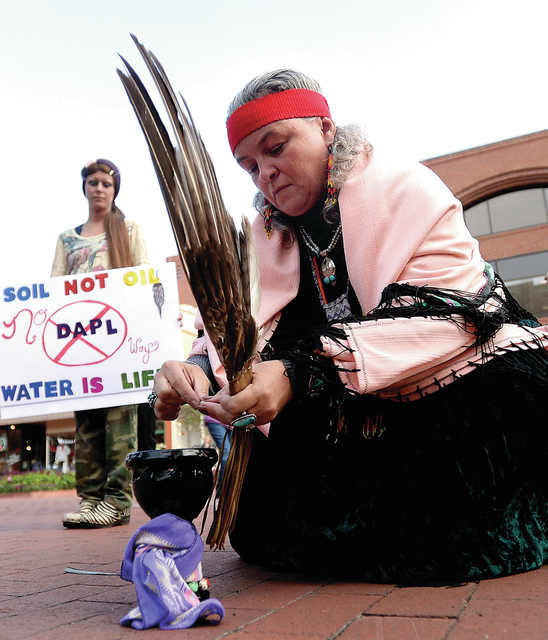FARGO, N.D. — A federal appeals court has ordered a halt to construction of another section of the Dakota Access oil pipeline in North Dakota. ADVERTISING FARGO, N.D. — A federal appeals court has ordered a halt to construction of
FARGO, N.D. — A federal appeals court has ordered a halt to construction of another section of the Dakota Access oil pipeline in North Dakota.
A three-judge panel of the U.S. Court of Appeals for the District of Columbia Circuit said in a ruling late Friday that it needs more time to consider the Standing Rock Sioux Tribe’s request for an emergency injunction. It said it will issue another order setting a date for oral arguments on the motion.
The order “should not be construed in any way as a ruling on the merits of that motion,” the panel said.
The ruling stops construction within 20 miles on either side of Lake Oahe. The federal government on Sept. 9 ordered a halt to construction on U.S. Army Corps of Engineers land under and around the lake after a U.S. District Judge James Boasberg rejected the tribe’s request for a preliminary injunction to halt construction of the $3.8 billion four-state pipeline. That led the tribe to ask for an emergency injunction.
Vicki Granado, spokeswoman for Dakota Access LLC, said the company does not comment on pending litigation. Craig Stevens, spokesman for the MAIN Coalition, Midwest Alliance for Infrastructure Now, called the ruling disappointing but said his group respects the panel’s decision.
“Judge Boasberg, in his thoughtful and thorough opinion last week, confirmed that the Army Corps of Engineers did their jobs expertly and in accordance with the law,” Stevens said in a statement.
The corps also issued a ruling on Friday granting the tribes a temporary permit that allows demonstrators to legally protest on federal lands managed by the agency. In turn, the tribe assumes responsibility for maintenance, damage and restoration costs, the security and safety of protesters, and liability insurance.
Republican Rep. Kevin Cramer, North Dakota’s lone member of the U.S. House, called the special permit a good compromise.
“It protects the protesters’ right to assemble and free speech, while at the same time protecting legal commerce to go forward,” Cramer said. “It sets up parameters and certainly puts liability where liability belongs, with the protesters and the leaders of the protest movement.”
Thousands of people from around the country have gathered at the encampment north of the reservation. It has been called the largest gathering of Native Americans in a century.



